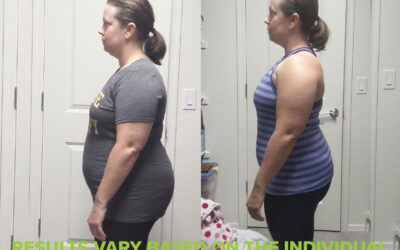For millions of women, the first hot flash is not as unsettling as the creeping feeling that their favorite jeans suddenly shrink overnight. If you are watching the scale climb while your hormones shift, the frustration can feel like betrayal: you are still eating well, squeezing in workouts, and yet belly fat seems determined to claim new territory. After nearly thirty years designing tailored nutrition programs in Scottsdale, Phoenix, Chandler, and Gilbert, I can promise that menopause does not write a metabolic death sentence. The real obstacle is misinformation. Today we will expose the most damaging myths about menopausal weight gain so you can trade discouragement for science backed health improvement that lasts.
Myth 1: “Weight Gain During Menopause Is Inevitable—Just Accept It”
Opportunity arrives the moment you reject fatalism. Yes, hormonal changes influence where fat is stored, but genetics and lifestyle still steer the ship. Research shows that women who maintain personalized nutrition strategies and resistance training keep visceral fat in check and enjoy weight loss after 50 comparable to younger peers. At Personalized Nutrition Concepts (PNC), I routinely watch post menopausal clients lose inches around the waist without starvation, proving that effective weight loss programs without starvation are not fairy tales but physiology leveraged wisely.
When estrogen declines, insulin sensitivity can dip, and cortisol spikes become common under stress. These shifts nudge calories toward abdominal storage, but with nutrition coaching that moderates blood sugar and supports adrenal health, the body relearns to burn fat instead of hoarding it. Translation: you can still sculpt your dream body—just with smarter tools.
Myth 2: “All Calories Are Equal During Menopause”
The classic “calories in, calories out” mantra shrivels under menopausal physiology. Declining estrogen alters how macronutrients are processed. Protein becomes more critical for muscle preservation; carbohydrates need strategic timing to avoid reactive hypoglycemia; healthy fats soothe inflammation and support hormone synthesis. At PNC we create customized diet plans that map macronutrients to each client’s lab data, activity level, and gut microbiome. This granular approach turns what looks like ordinary food into an anti aging prescription.
Consider the concept of cellular rejuvenation. When meals deliver ample antioxidants, omega threes, and polyphenols from anti aging foods for cellular health—think wild salmon, berries, extra virgin olive oil—mitochondria operate efficiently, mitochondrial DNA sustains less oxidative damage, and metabolic rate receives a subtle but sustained boost. That’s why two women can consume identical calories but experience starkly different outcomes: the quality and timing of those calories alter genetic expression.
Myth 3: “More Cardio Is the Only Way to Combat Menopausal Belly Fat”
Endless jogging can backfire by elevating cortisol, the very hormone that deepens abdominal fat deposition. Strength training and high intensity interval training preserve lean mass, which elevates resting metabolic rate long after the workout ends. My clients over 50 who lift weights twice weekly and perform short burst sessions outperform their cardio only counterparts in both belly fat reduction and bone density, safeguarding against osteoporosis.
Incorporating exercises to target menopausal belly fat—planks, deadbugs, compound lifts—creates functional core strength while stoking post exercise oxygen consumption. Pair that with personalized nutrition for menopausal belly fat rich in magnesium and B vitamins, and you have a one two punch against cortisol and insulin dysregulation.
Myth 4: “Fasting and Extreme Carb Cuts Are the Fastest Way to Drop Menopausal Pounds”
Fad diets fail because they ignore hormone feedback loops. Severe restriction magnifies stress responses, ironically driving water retention and fat storage. Clients arrive at my Phoenix studio demoralized after keto or prolonged fasts, only to discover their thyroid hormones have downshifted. We rebuild metabolism through simple nutrition hacks for better health—spreading protein evenly across meals, front loading fiber rich vegetables, and hydrating strategically—and weight releases in a sustainable arc rather than a crash and rebound cycle.
Fast results feel seductive, but I always remind women that fast weight loss vs. sustainable health strategies is not a genuine choice. Sustainable wins every time because it protects muscle and hormonal symphony. Our customized weight loss programs that work highlight nutrient density and satiety, freeing clients from the mental shackles of constant calorie math.
Myth 5: “Supplements Alone Can Fix Hormonal Weight Gain”
From green tea capsules to dim containing potions, the supplement market promises miracles. While evidence based micronutrients can support metabolism—vitamin D, magnesium, omega three fish oil—the backbone remains diet quality and movement. Supplements polish the edges; they do not build the foundation. Part of debunking myths means steering clients toward lab tested formulations and away from Instagram hype, then anchoring those nutrients within a whole food personalized nutrition plan.
Solution: A Science Driven Roadmap for Managing Hormonal Changes and Belly Fat
Transformation begins with data. At PNC every woman completes a comprehensive assessment—body composition scan, metabolic panel, and lifestyle inventory. From there we craft a blueprint that aligns with her schedule, preferences, and goals. A typical tailored nutrition program might integrate the following pillars:
Targeted Macronutrient Distribution ensures protein intake hits 1.0–1.2 grams per kilogram of body weight to preserve muscle, with carbs cycled around activity to maximize glycogen without spiking insulin.
Strength Centric Training two to three days weekly, combined with brisk walking on off days, keeps cortisol manageable while boosting growth hormone, an ally against visceral fat.
Hydration Protocols modeled after our previous discussion help manage appetite and support detoxification pathways. Women often underestimate water’s role in beating menopausal weight gain until they experience fewer cravings and more stable energy firsthand.
Sleep Optimization—the secret sauce. Each hour of quality sleep tempers ghrelin and elevates leptin, creating a hormonal environment conducive to fat loss.
Mind Body Techniques such as breathwork or gentle yoga distribute cortisol buffering effects throughout the day, maintaining metabolic flexibility.
The timeline Most clients witness measurable decreases in waist circumference within eight to twelve weeks, a pace that preserves lean tissue and confidence.
Case Study: Carolyn’s Journey to Losing Belly Fat After 50
Carolyn, 56, from Gilbert, arrived convinced that gravity and menopause had conspired against her. She had tried skipping dinner, intermittent fasting, and daily five mile runs. Her weight plateaued at 182 pounds, and visceral fat climbed. Our labs revealed cortisol spikes at 3 p.m. and low vitamin D. We eased her training into three full body strength sessions, swapped late day coffee for herbal tea, and introduced balanced lunches with leafy greens, quinoa, and grilled turkey. Within three months Carolyn dropped twelve pounds, half from abdominal stores, her energy soared, and her fasting glucose normalized—a testament to aligning lifestyle with biology rather than fighting it.
Takeaway: Rewrite Your Menopause Story
The rumor mill may shout that menopause dooms you to inevitable weight gain, but data—and decades of client victories—say otherwise. Personalized nutrition leverages your unique biochemistry, turns hormonal changes from enemy into guide, and unlocks sustainable weight loss. Imagine waking each morning free from groggy carb cravings, confident that your reflection mirrors the vibrancy you feel inside.
If you are ready to outsmart myths and craft a body that serves your ambitions, schedule your complimentary discovery call at pncaz.com today. Together we will customize a roadmap grounded in science, enriched by empathy, and tailored for the life you love. Menopause is a milestone, not a weight gain sentence. Let’s prove it—one empowered choice at a time.



0 Comments